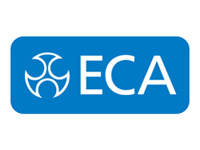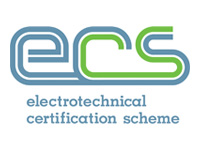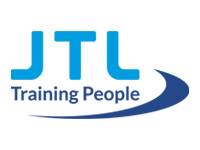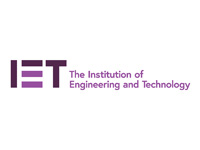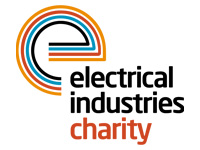Powering progress: diversity and inclusion in Electrical Engineering. An interview with Samantha Jones, Director of Melvin John Electrical Contracting Ltd
Our colleagues at ECIS recently interviewed Samantha Jones who rose from apprentice to director in a traditionally male-dominated industry. Additionally, Samantha shares the positive changes in electrical engineering as the sector moves towards greater diversity and inclusion.
Can you share your journey to becoming a co-director of an electrical firm?
My electrical career started in my early twenties when I was given the opportunity to start an apprenticeship with Melvin John Electrical Contracting Ltd. At the time, I was a care worker in the health and social care sector, which I enjoyed. However, the role did not have the career prospects I wanted, so I changed my path and took up an apprenticeship. I have always been fortunate to have an employer who has not only seen my potential but also pushed me to progress in the business. The opportunity to become a director was discussed after the completion of my apprenticeship, with the aim of me taking on the role once I had gained more experience. Ten years on, after starting my apprenticeship, I became a Co-director.
What challenges did you encounter as a woman in a traditionally male-dominated industry?
I have always enjoyed and continue to enjoy working with my male counterparts.
In my experience, the challenges that have been most prominent in my career so far have been welfare facilities, i.e., women’s toilets/changing rooms… or the lack of them! Also, clothing, i.e., ill-fitting PPE and work wear that had not been manufactured or sized for a female. I have encountered situations recently with a particular company where the refurbishment of one of their void domestic properties was underway. In these circumstances, we would normally utilise the toilet facilities within the property whilst undertaking our work. In this instance, all the internal doors had to be replaced. A separate contracting company removed all the internal doors in the property, including the toilet door; these will not be restored until a later date, leaving me and my female apprentice having to find a facility elsewhere when working alongside male contractors. However, moving forward, I do feel as if these issues have improved a lot since I started in the industry. With the increase of women in construction, I hope they continue to improve.
Were there any pivotal moments or mentors who significantly influenced your professional development?
In 2015, I completed the JIB, ECA, and Unite the Union Apprentice Exchange Program, which gave me the experience of living and working in New York for six weeks. Not only was the work experience itself a fantastic opportunity, but I also stayed with an amazing lady named Veronica Rose, who, at the time, owned and ran her own very well-established Electrical Company within the Construction Industry in New York City. From the first day I met Veronica, I admired her passion and dedication to her work. While living with Veronica, I observed first-hand how she dealt with the daily challenges of running a business in one of the busiest iconic cities in the world. Veronica is an all-inspiring female who, with her achievements, has made giant steps not only in the electrical/construction industry but also for Women in the industry. She has significantly influenced my professional and personal development.
How has the industry evolved regarding gender?
Positive steps are being taken towards gender diversity. However small they may be, the industry is becoming more proactive with women’s employment. Our company, Melvin John Electrical (MJE), has hired a new female apprentice. Emily has shown enormous potential in her first year with our company. She fits in very well with our small team of electrical engineers. As a company, we have achieved a good percentage of diverse team members, 60% Male and 40% Female. This is a particular career highlight for me. I hope Emily succeeds in this career and inspires other females to follow suit. A large Industrial Boiler hire company that MJE subcontracts to has also been actively working to employ a more diverse workforce. I like to think that I have influenced them during discussions that I have been included in in their decision to become more gender diverse.
What advice would you offer women considering a career in the electrotechnical sector?
Ask yourself the right questions. As women, we should not be questioning ourselves as to whether it’s right to take up a career because it is in a predominantly male industry. Or, being female, what if I cannot produce the same work as my male counterparts?
As a person looking to take on a new career, we should ask ourselves, is this role right for me, i.e. working on site, working outdoors, travelling a lot? Is the workload and the hours suitable for me? Or does this career have the prospects I’m looking for?
Our future job considerations should not be decided by gender but by our ability to do the job, how we think we will perform in the role, and whether we would be happy and content within the industry.
When making these considerations, we women should be sure to know that hundreds of females across the UK and thousands across the world are extremely successful in the electrotechnical sector and have already proven that gender is not an issue.
In what ways do you believe that prioritising employee well-being, including access to healthcare benefits like PMI, contributes to a healthier and more productive workforce?
Having access to healthcare benefits is crucial for our workforce, especially in today’s climate, where it can be difficult to book health appointments when required. This can affect one’s ability to work.
I have benefitted from accessing the ECIS healthcare coverage I receive through our company as a member of the Joint Industry Board. The process was fast and efficient, which allowed me to be fit for work quickly and efficiently.
Leading by example
Thank you to Samantha Jones for sharing her inspiring journey with us. From apprentice to director, Samantha’s insights shed light on both her challenges and the positive changes she’s witnessing in the industry. Her story underscores the importance of diversity and inclusion in attracting the best people. As our industry evolves, Samantha’s story serves as a positive example of progress in electrical engineering.
How ECIS can help
ECIS, a regulated insurance intermediary, focuses on delivering Private Medical Insurance tailored for companies within the construction sector. JIB works with ECIS to provide healthcare benefits for JIB Member Companies. To find out more email membership@JIB.org.uk
For businesses already enrolled in healthcare schemes, ECIS offers comprehensive reviews of your present arrangements and can provide comparison quotes. To contact ECIS directly email: ecis@ecins.co.uk
